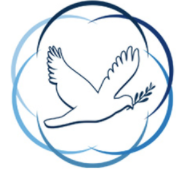"Formers" Lecture Circuit and Community Dissent: A Case Study of Ex-Neo-Nazi Platforming
Loading...
Location
Sasquatch Room 124 C
Event Website
https://www.gonzaga.edu/academics/centers-institutes/center-for-the-study-of-hate/international-conference-on-hate-studies
Start Date
21-4-2023 1:00 PM
End Date
21-4-2023 2:15 PM
Publication Date
2023
Disciplines
Arts and Humanities | Law | Social and Behavioral Sciences
Description
This roundtable offers a case study of the phenomenon of former white nationalists (“formers”) marketing themselves for speaking events, especially at higher education institutions. It brings together faculty, students, community members, and local activists/organizers who worked to block a “former” from speaking at Eastern Washington University (EWU) in spring, and then again in fall, of 2022. It offers a current, concrete example of the ways “formers” market themselves, are able to gain strategic support from certain communities or organizations. In these platforming efforts we see the wielding of free speech discourse, empathy/second-chance rhetorics, the fostering of victim-blaming, and often misleading or obscuring information about the formers, including their motivations and organizational ties. Members of this roundtable talk about how they organized to challenge this event and think collectively about how we all can address these threats in the future. Using the proposed EWU event as an example, we examine how these events center the perpetrators of hate/violence, rather than victims/survivors, thereby perpetuating the very thing they are purportedly opposing, white supremacy. We found at the local level that an event was organized with a lack of transparency and that fascination with stories of redemption may have led to ignoring concerns raised by multiple organizations in the process, including BIPOC-led community groups, student groups, and campus programs.We consider the following questions: how do we effectively communicate our opposition across different constituencies; how do we convince university leadership to take these potential harms seriously; how do we work more collaboratively and effectively; how do we insure that students are educated and how do we sustain institutional knowledge about these struggles; how do we share information, strategies, and resources with other universities/communities facing these events; how do we keep each other safe in this organizing?
Description Format
html
Recommended Citation
Rohrer, Judy; Braune, Joan; Moore, Liz; Lam, Pui-Yan; and Munawar, Iman, ""Formers" Lecture Circuit and Community Dissent: A Case Study of Ex-Neo-Nazi Platforming" (2023). International Conference on Hate Studies. 3.
https://repository.gonzaga.edu/icohs/2023/7videos/3
Full Text of Presentation
wf_yes
WebVTT captions
Media Format
flash
Type
Roundtable
"Formers" Lecture Circuit and Community Dissent: A Case Study of Ex-Neo-Nazi Platforming
Sasquatch Room 124 C
This roundtable offers a case study of the phenomenon of former white nationalists (“formers”) marketing themselves for speaking events, especially at higher education institutions. It brings together faculty, students, community members, and local activists/organizers who worked to block a “former” from speaking at Eastern Washington University (EWU) in spring, and then again in fall, of 2022. It offers a current, concrete example of the ways “formers” market themselves, are able to gain strategic support from certain communities or organizations. In these platforming efforts we see the wielding of free speech discourse, empathy/second-chance rhetorics, the fostering of victim-blaming, and often misleading or obscuring information about the formers, including their motivations and organizational ties. Members of this roundtable talk about how they organized to challenge this event and think collectively about how we all can address these threats in the future. Using the proposed EWU event as an example, we examine how these events center the perpetrators of hate/violence, rather than victims/survivors, thereby perpetuating the very thing they are purportedly opposing, white supremacy. We found at the local level that an event was organized with a lack of transparency and that fascination with stories of redemption may have led to ignoring concerns raised by multiple organizations in the process, including BIPOC-led community groups, student groups, and campus programs.We consider the following questions: how do we effectively communicate our opposition across different constituencies; how do we convince university leadership to take these potential harms seriously; how do we work more collaboratively and effectively; how do we insure that students are educated and how do we sustain institutional knowledge about these struggles; how do we share information, strategies, and resources with other universities/communities facing these events; how do we keep each other safe in this organizing?
https://repository.gonzaga.edu/icohs/2023/7videos/3


